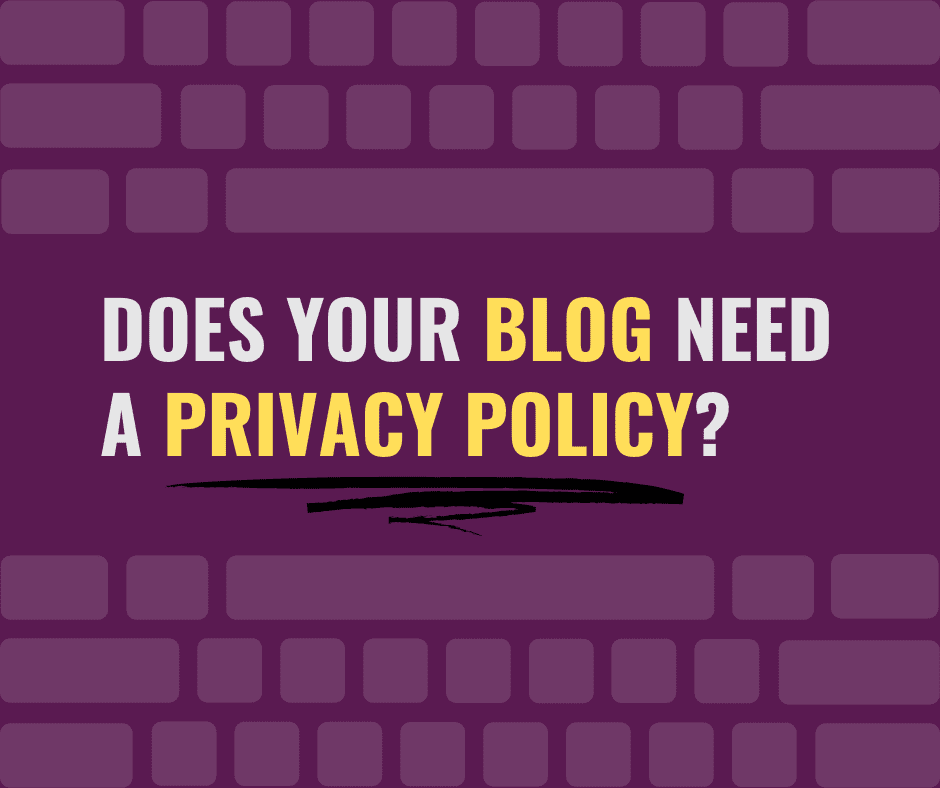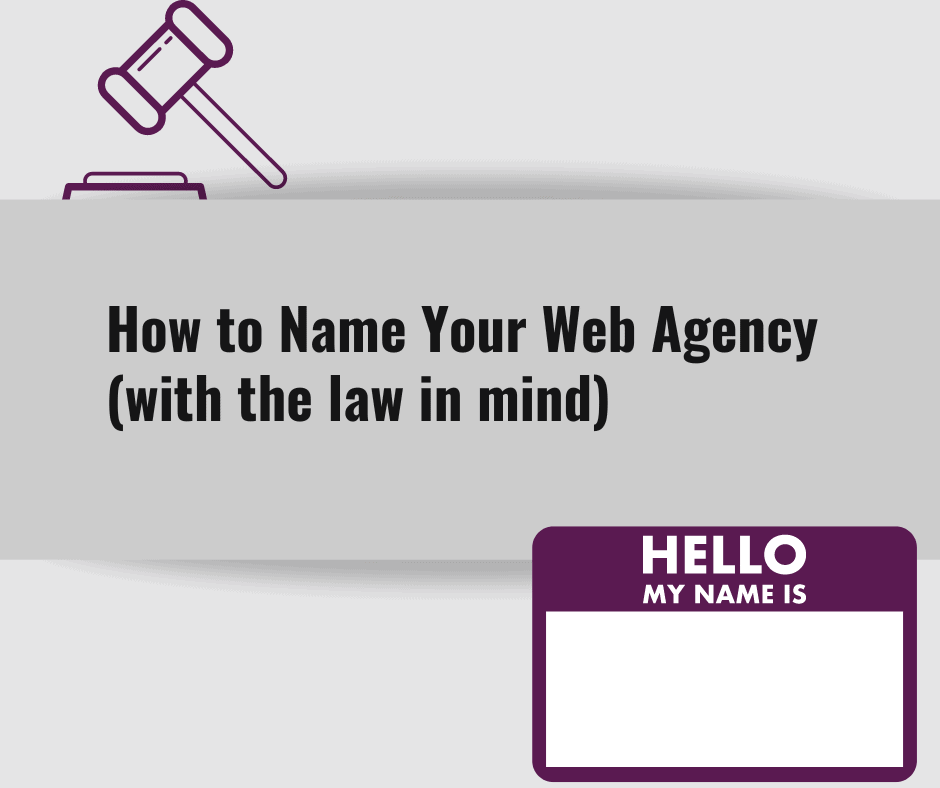If you have a blog where you discuss your travels, share your recipes, or update readers about the latest fashions, you may be asking: do I really need a Privacy Policy for my blog? While this isn’t a one-answer-fits-all scenario, we find that most bloggers do need a Privacy Policy on their blog due to the fact that they collect Personally Identifiable Information (PII) – information that’s protected by a whole host of privacy laws.
If you’re not sure whether or not you collect PII, it’s certainly worth finding out. After all, if you do not have a Privacy Policy on your blog and there are certain privacy laws that apply to you, the fines for violations start at $2,500 per website visitor.
In this article, we will discuss what PII is and how it’s often collected so that you can determine whether or not your blog needs a Privacy Policy.
Table of Contents
Does your blog collect Personally Identifiable Information (PII)?
Personally Identifiable Information (PII) is any information that could identify a particular individual or any information relating to that individual. PII is regulated under a number of privacy laws and, in most cases, if you are not collecting PII, then those privacy laws will not apply to you. While you may be thinking that your blog does not collect PII, you may be surprised as the following blog features frequently collect PII:
- Blog article comment forms (collect names and email addresses);
- Newsletter subscription forms (collect names and email addresses);
- Website analytics such as Google Analytics (collect IP addresses);
- Advertising pixels such as Facebook Pixel, LinkedIn Insight Tags or Google Pixel (collect IP addresses, information about how individuals interact with advertisements, social media user ID’s, etc.);
- Contact forms (collect names, email addresses, phone numbers and potentially more).
Even though privacy laws can start applying to your blog as soon as you collect PII, it is important to note that blogs very frequently share PII as well. For example, if your blog allows individuals to subscribe to a newsletter and then you send such newsletters through services like MailChimp, ConstantContact or ActiveCampaign, your blog is sharing this PII with email marketing vendors. In addition, if you receive an email once an individual submits a contact form on your website, then you may be sharing that PII with email service providers.
While collecting and sharing PII through your blog is not necessarily a bad thing, it is important to note that such practices are regulated under a variety of different privacy laws, which may require your blog to have a comprehensive Privacy Policy.
What is the nature of your blog?
While some privacy laws regulate those who operate a website for any purpose (including a blog), others only regulate those who operate a website for a commercial purpose. To determine what privacy laws apply to you and thus whether you need to have a Privacy Policy, you will first need to determine whether your blog has a commercial purpose.
A commercial purpose is a means to advance your commercial or economic interests, such as by inducing another person to buy, subscribe to, provide or exchange products, goods, property, information, or services, or by enabling or effecting, directly or indirectly, a commercial transaction. The following types of blogs are examples of blogs that have a commercial purpose:
- Blogs that receive affiliate income through affiliate links. For example, if your blog shares your favorite recipes and links to Amazon to purchase the ingredients and you receive a commission anytime someone purchases those products, that would engaging in a commercial purpose;
- Blogs that sell goods or services. For example, if your blog shares your favorite recipes and an individual can book you for a private chef session through your blog, that would be engaging in a commercial purpose as you are getting paid for such sessions;
- Blogs that sell subscriptions. For example, if your blog shares your favorite recipes and an individual can pay $10 per month to receive access to special recipes, then you are engaging in a commercial transaction;
- Blogs that display third party advertisements. For example, if a third party pays you to display advertisements for their cookware on your blog, then you are engaging in a commercial purpose.
On the other hand, if your blog is simply meant to share your thoughts and insights and you receive no money from the blog or are not engaging in any commercial activity, then your blog would probably not have a commercial purpose.
What privacy laws can require blogs to have a Privacy Policy?
In general, privacy laws are enacted to protect the privacy of individuals residing in certain states or countries. Due to the broad reaching nature of the Internet (anyone from anywhere can submit their PII to a website), this means that privacy laws can apply to you even if you are not located in the state or country in which that privacy law was passed. Unfortunately for bloggers, privacy laws do not specifically exempt blogs, nor do they all specifically exempt small businesses. To determine what privacy laws apply to your blog, you should ask yourself whose PII you are collecting, who you are tracking as they use your website, where are your customers located (if your blog allows individuals to make purchases), or where you offer goods or services (if you do offer goods or services through your blog).
If your blog has a commercial purpose, then the following privacy laws may require you to have a Privacy Policy:
- California Online Privacy and Protection Act of 2003 (CalOPPA);
- California Privacy Rights Act (CPRA);
- Nevada Revised Statutes Chapter 603A;
- Delaware Online Privacy and Protection Act (DOPPA);
- Virginia Consumer Data Protection Act (VCDPA);
- Colorado Privacy Act;
- Utah Consumer Privacy Act (UCPA);
- Connecticut SB6;
- Iowa SF262 (effective January 1, 2025);
- Indiana SB5 (effective July 1, 2026);
- Tennessee Information Protection Act (TIPA – effective July 1, 2025);
- Montana Consumer Data Privacy Act (MCDPA – effective October 1, 2024);
- Texas Data Privacy and Security Act (TDPSA – effective July 1, 2024);
- Oregon Consumer Privacy Act (effective July 1, 2024);
- Delaware Personal Data Privacy Act (DPDPA – effective January 1, 2025);
- NJ SB332 (effective January 16, 2025);
- New Hampshire SB 255 (effective January 1, 2025);
- Kentucky HB15 (effective January 1, 2026);
- General Data Protection Regulation (GDPR);
- United Kingdom Data Protection Act (UK DPA);
- Personal Information Protection and Electronic Documents Act (PIPEDA);
- Quebec Law 25;
- Australia Privacy Act of 1988.
On the other hand, if your blog does not have a commercial purpose, you may still be required to have a Privacy Policy if any of the following privacy laws apply to you:
- General Data Protection Regulation (GDPR);
- United Kingdom Data Protection Act 2018 (UK DPA);
- Quebec Law 25.
If any of the above privacy laws apply to you, then you may be required to have a comprehensive Privacy Policy on your blog.
The Privacy Policy for bloggers requirement
Once you have determined what privacy laws apply to your blog, it is important to remember that each privacy law has its own set of requirements for what disclosures your Privacy Policy needs to contain. That is why bloggers should not use Privacy Policy templates for blogs as such templates are not based on the privacy laws that apply to you so they cannot, by their nature, contain all of the required disclosures. In addition, if you are using the default Privacy Policy provided by WordPress for your blog, you should be aware that this WordPress Privacy Policy does not actually comply with any privacy laws, which could leave you at risk for privacy violation-related fines.
In addition, with over a dozen privacy bills proposed in the United States, and countries such as Canada and the United Kingdom considering changing their privacy laws, you will need a strategy to keep your Privacy Policy up to date with changing requirements, something a sample Privacy Policy for a blog cannot do. The best route for bloggers to obtain a Privacy Policy is to either use a privacy attorney or a Privacy Policy generator for bloggers such as Termageddon.




